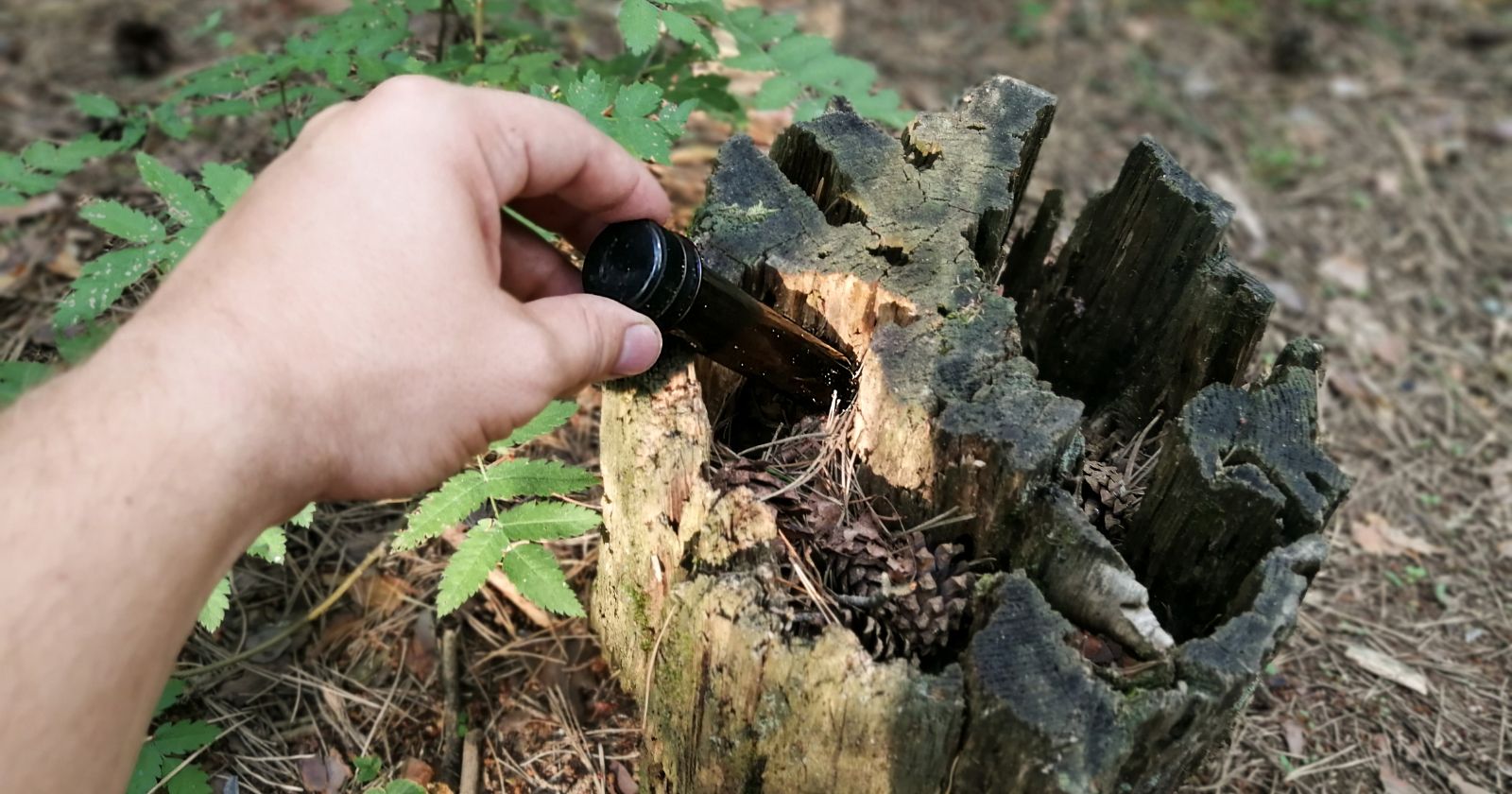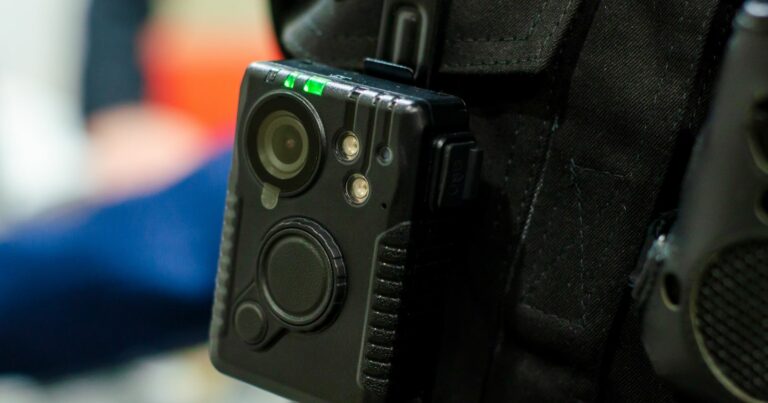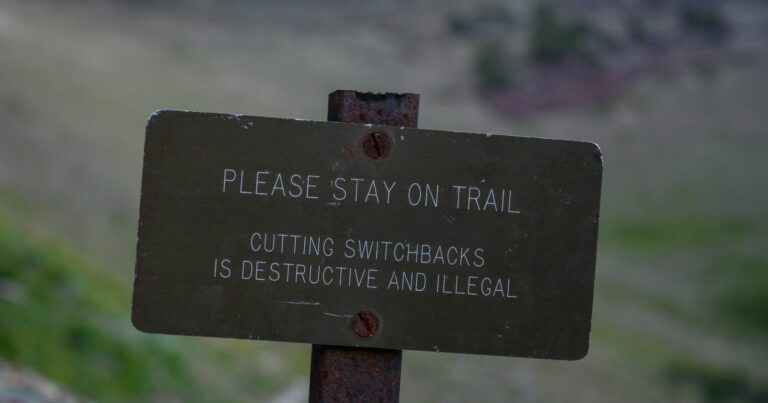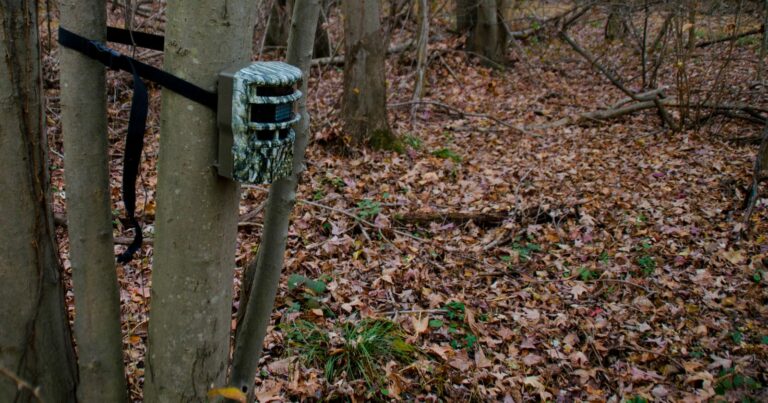What State Outlawed Game Cameras?
Have you ever shown up to your favorite hunting spot, only to find that another hunter has beat you to it? They knew exactly where to sit because they’ve been watching the area for days or weeks using a game camera. While game cameras can be useful scouting tools, they also take some of the challenge and fairness out of hunting. That’s why New Hampshire recently became the first state to completely ban hunting with game cameras.
If you primarily hunt in New Hampshire, this new rule has likely caused some frustration. But before you stash your game cameras in the closet for good, you should know that most states still allow them with some regulations. I’ll break down the rules so you can use your cameras in a way that’s legal and ethical.
New Hampshire is currently the only state with a total ban on using game cameras for scouting during hunting season. Even possessing a game camera in the field during hunting seasons is illegal there. Some other states like Arizona, Kansas, Nevada and Utah have limited restrictions about using game cameras on public lands. And Montana bans the use of cellular trail cameras for hunting. But most states, including popular hunting destinations like Colorado, Wisconsin, and Texas, still allow game camera use with some minor regulations.
The rules around game cameras are constantly evolving, so be sure to check your state’s regulations before each hunting season. And consider avoiding cameras on small parcels of private land where they could give you an unfair advantage over other hunters. With a bit of extra care, game cameras can help you have your most successful season ever while still playing fair.
How New Hampshire’s Game Camera Ban Works
In June 2022, New Hampshire Fish and Game Department banned the use of all trail cameras for scouting game from August 1 through December 15. This covers the majority of popular hunting seasons in the state. Some key facts about the new law:
- It applies to all New Hampshire hunting license holders. Both residents and non-residents are prohibited from using game cameras.
- You cannot possess a game camera in the field while hunting in New Hampshire. Simply having one with you is illegal during hunting seasons.
- The ban includes cellular game cameras as well as traditional models. Any electronic device used to monitor game movement is prohibited.
- Exceptions are made for cameras used solely for security purposes to monitor camps and private property. But they cannot be used for scouting game.
The New Hampshire ban is the most restrictive in the country. But a few other states have limited regulations on game camera use.
Where Else Are Game Cameras Restricted?
While most U.S. states still allow game cameras, a few have begun adding restrictions:
- Arizona, Kansas, Nevada, and Utah have banned the use of game cameras for scouting on all public lands during hunting seasons. Using them on private land is still legal.
- Montana prohibits the use of cellular game cameras for any hunting purposes year-round. Traditional cameras are still legal.
- A few other states like Virginia and Wisconsin have limited regulations about removing cameras from the woods by a certain date before seasons open.
Why Are States Banning Game Cameras for Hunting?
Game camera bans aim to level the playing field and keep hunting fair. Here are some of the concerns over their widespread use:
- Unfair advantage: Hunters using cameras get a huge edge by monitoring deer and elk movement weeks before the season. They know where animals are bedding and feeding well before opening day.
- Pressuring game: Excessive use of cameras can stress and alter animal behavior. Bull elk have been known to abandon areas with cameras.
- Trespassing: Hunters often place cameras on private land without permission, violating property rights.
- Public land crowds: Cameras lead more hunters to flock to small areas of public lands where big game is spotted. This overcrowds limited public access.
- DIY hunting skills: Some argue cameras reduce the importance of field skills, tracking, and outdoorsmanship in hunting success.
Tips for Using Game Cameras Ethically and Legally
Game cameras don’t need to be vilified, but they do require some care in how they are used:
Check regulations annually: Rules are changing fast, so review your state’s laws before each season. Never assume last year’s rules still apply.
Get written permission: Always ask landowners before putting a camera on private property, even if you have hunting permission. Make sure you collect the camera promptly after the season.
Minimize use on public lands: Focus cameras mainly on your own private land instead of crowded public areas. And share info about game on public lands with other hunters.
Use sparingly: Limit camera sites to 2-3 per 100 acres, and check them no more than once per week. Avoid excessive monitoring of movements.
Encourage fair chase: If you get a monster buck on camera, consider passing him up and giving other hunters a chance. Share info about where you saw him.
Remove cameras preseason: To avoid pressuring game, remove cameras at least 2 weeks before you’ll be hunting the area they monitored.
Will Other States Follow New Hampshire’s Game Camera Ban?
It’s unlikely most states will entirely ban game camera use like New Hampshire has. But we will likely see more states add restrictions around certain aspects of their use:
- More bans on public land use like AZ, KS, NV and UT have implemented.
- Potential prohibitions on cellular cameras like Montana due to transmission of photos.
- Possible limits on number of cameras per acre, or required spacing between cameras.
- Seasonal restrictions on deployment time preseason to limit pressuring game.
- Required removal dates in spring to avoid trespassing and littering issues.
Hunters should be thoughtful to avoid overuse of cameras leading to more regulations. And always stay up to date on your state’s specific rules. Responsible and ethical use of cameras will help preserve our hunting freedoms.
Key Takeaways on Game Camera Regulations
Here are some important facts to remember about using game cameras legally across the U.S.:
- New Hampshire is the only state with a total ban on game camera use while hunting. Possessing one in the field during hunting seasons is illegal there.
- A few western states prohibit cameras on public lands but allow them on private lands.
- Most Midwest, Plains, South and Northeast states still allow game camera use with some minor restrictions in certain cases.
- Rules are changing quickly, so always verify your state’s regulations before placing any cameras.
- Avoid excessive use of cameras on small parcels of public land or private land you have access to.
- Carefully follow all rules around placement dates, removal dates, and permissions to use cameras ethically.
Frequently Asked Questions
Q: I live in New Hampshire and already own game cameras. Now that they are illegal, what should I do with them?
A: Since you can no longer legally use your game cameras in New Hampshire for hunting purposes, you have a few options. You could give or sell them to someone who hunts in another state where they are still legal. Or you could repurpose them solely for security around your home or camp, while avoiding any scouting uses. You could also temporarily store them in case New Hampshire ever reverses this law in the future. But you cannot legally possess them afield during hunting seasons anymore.
Q: If I have private land in Arizona, can I still use game cameras there?
A: Yes. The Arizona ban only applies to game cameras on public lands. Using them for scouting on your private property is still perfectly legal. Just be sure to remove them once hunting seasons begin.
Q: I hunt on my uncle’s large ranch in Texas. Can I still use cameras to scout for deer and hogs there?
A: Yes. Texas has not banned or restricted the use of game cameras for hunting on private lands at this time. So you can legally use them to scout game on private property like your uncle’s ranch. Just be sure to get his permission first.
Q: Are cellular cameras that transmit images legal in Montana?
A: No. Montana has banned all cellular game cameras for any hunting purposes year-round. So cellular trail cameras are illegal for scouting game there. Regular cameras are still allowed if not used to transmit data wirelessly.
Q: If I find a great spot to hunt on public land from a game camera, should I share that info with other hunters?
A: Ethically, you should share useful info from public land cameras with fellow hunters. Avoid monopolizing a great public spot. And after taking a buck you’ve been monitoring, share that intel too so others have a chance. Following fair chase principles will help prevent more game camera bans.
Responsible use of game cameras can be a great asset to scouting. But overuse can lead to unfair advantages. Keep up with regulations in your state, and use cameras sparingly.






